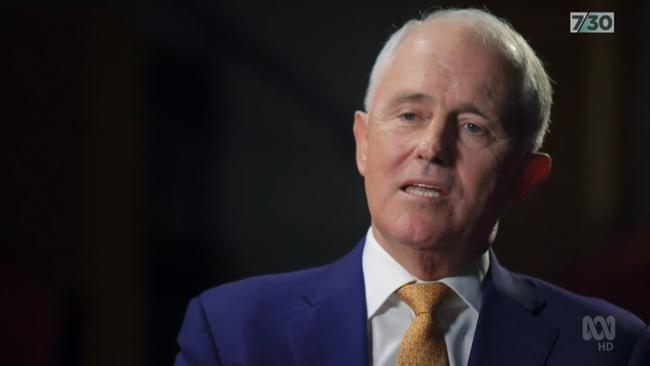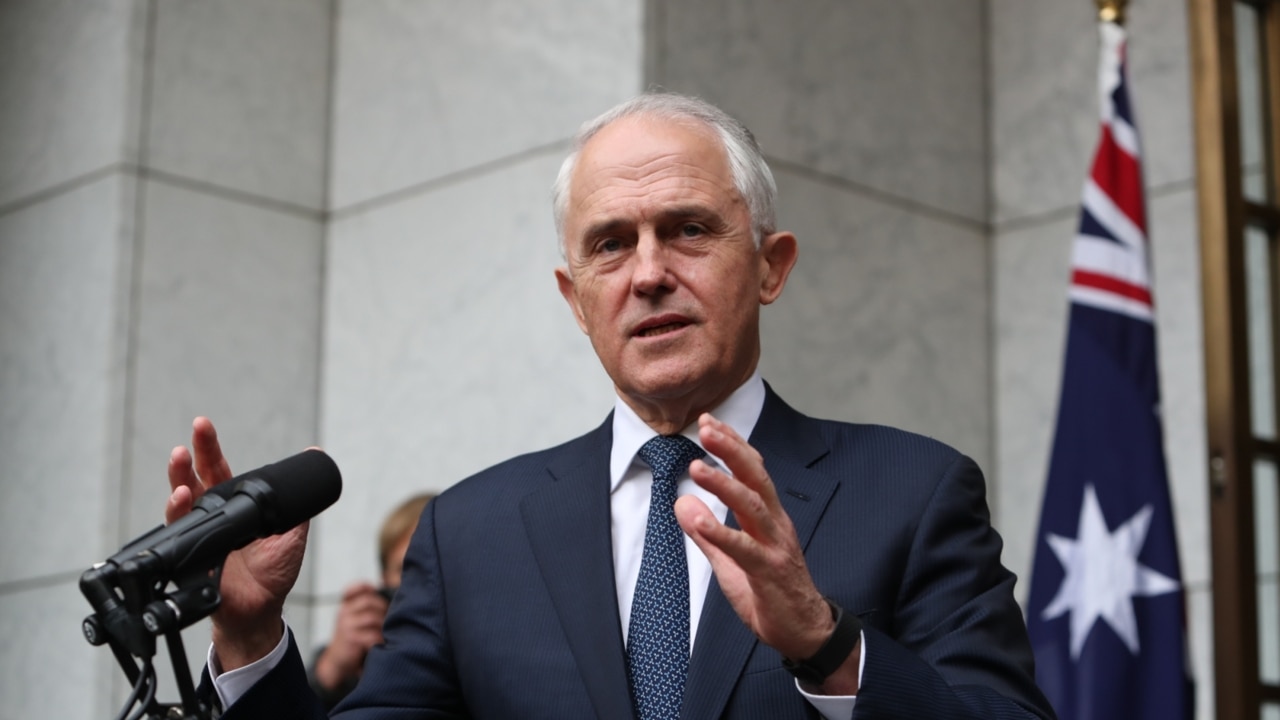Malcolm Turnbull’s book omissions tell us more than the inclusions
The main problem with the former PM’s memoir is his lack of awareness of history.

It’s much the same with political biographies. Sometimes a former politician’s memoirs reveal more about the author when the focus is on what is omitted, or downplayed, than by what is covered in some detail.
Take, for example, Malcolm Turnbull’s A Bigger Picture (Hardie Grant), released last Monday. The memoir contains no mention of the fact, in the past, NSW Labor Party operatives such as Graham Richardson and Michael Costa have revealed that Turnbull made several attempts at becoming a Labor member of the federal parliament. According to Richardson, Labor prime minister Paul Keating was happy for Turnbull to jump on the Labor Party cart (to use Keating-speak). However, the party’s hardheads, such as Richardson, Costa and John Della Bosca, would not yield.
And so it came to pass that Turnbull became the Liberal Party’s member for Wentworth in Sydney’s east in 2004, after winning a controversial preselection contest against incumbent Peter King. And the rest is history. Albeit not the complete story as told to readers of The Bigger Picture.
The essential problem with A Bigger Picture turns on the author’s lack of awareness about himself and the Liberal Party he led on two occasions, from September 2008 to December 2009 and from September 2015 to August 2018.
Since its formation in 1944, the Liberal Party has had a very pragmatic view about leadership. Put simply, it goes for winners. Four Liberal leaders have won office from opposition after defeating Labor at the polls — Robert Menzies (1949), Malcolm Fraser (1975), John Howard (1996) and Tony Abbott (2013). The first three enjoyed the support of the party room during their time as prime minister. Abbott was replaced as prime minister by Turnbull in a leadership challenge.

In his long interview with Leigh Sales on ABC TV’s 7.30 on Monday, Turnbull denied that the real reason he challenged for the leadership in 2015 turned on the fact the Coalition under Abbott had lost 30 Newspolls in a row. That’s not how most who viewed or heard Turnbull’s media conference at the time will recall the occasion.
Turnbull’s essential message to the Liberal Party colleagues in September 2015 was that he was more likely than Abbott to lead them to victory in the 2016 election. The challenge did not turn on policy. For starters, if Turnbull vehemently opposed the Abbott government’s agenda the path was obvious: resign from cabinet, go to the backbench and challenge from there. It was a road not taken.
Since Turnbull’s pitch to his colleagues to be returned as party leader turned on his ability to win votes at election time, it was inevitable that he would be judged accordingly. That’s what made the July 2016 election so important.
Turn to chapter 32 of A Bigger Picture, titled The 2016 Election. What’s significant about this chapter turns on what it does not say. The fact is that in 2016 virtually all supporters of the Coalition were willing Turnbull to have a big victory, primarily because, whatever they thought of Turnbull vis a vis Abbott, Bill Shorten and Labor were the real political enemy.
Contrary to some mythology, Turnbull got his way in the conduct of the 2016 campaign. It was Turnbull who decided on a double-dissolution election and a campaign that ran for eight weeks. At the time, anyone with a political memory would have known that Labor prime minister Bob Hawke’s decision in 1984 to have a campaign that ran for 7½ weeks was flawed. Labor was returned but it lost seats to opposition leader Andrew Peacock.
Turnbull’s eight-week campaign in 2016 was close to a disaster. The government was narrowly returned after a net loss of 14 seats. It lost in areas where Abbott had won three years earlier — in northern Tasmania, western Sydney and Queensland.
In this sense, chapter 32 is revealing. Turnbull writes that in the 2016 campaign “resting was essential” and makes several references to being afflicted by the flu for some weeks. He refers to Sky News’ Paul Murray as a “crazy right-wing commentator” and describes radio presenter Alan Jones as “a weirdo”. There is also reference to Turnbull minister Peter Dutton as a “bullet-headed former Queensland cop” and he describes Abbott as having “no shame”.
All this overlooks the fact Dutton and Abbott were among the Coalition’s best attack dogs in the political battle against Labor, and Murray and Jones were vehement opponents of the opposition leader, Shorten. This is somewhat ironic since, in this chapter, Turnbull blames the “Mediscare … big lie” (Shorten’s attack over Turnbull’s alleged policy on Medicare) as the principal reason for the Coalition’s loss of seats. And that’s about it.
Turnbull quotes at length from two diary entries written during the campaign, one of which begins: “Didn’t sleep especially well last night.” But he fails to address why, despite advice to the contrary, he failed to run a negative campaign against Labor and Shorten. Negative campaigns work — as the likes of Menzies, Fraser, Howard and Abbott have demonstrated through the years, along with Scott Morrison last year.
Turnbull falsely claims he was the victim of “a coup” led by Liberal Party “terrorists”. This is delusional. Turnbull lost the prime ministership because he failed to retain the support of most of his colleagues in the Liberal Party room. It’s politics, not terrorism.
If Turnbull had done better in 2016, or if he had not performed so badly in the Longman by-election in Queensland in 2018, then he might have led the Coalition again last year. It didn’t happen.
The former prime minister’s failure to understand the reasons for his political demise indicates that he was never going to be a long-term successful politician.




As readers of Arthur Conan Doyle’s short story Silver Blaze will recall, Sherlock Holmes solves a crime by focusing on a dog that did not bark. It was, in Holmes’s terminology, another “elementary, my dear Watson” moment.